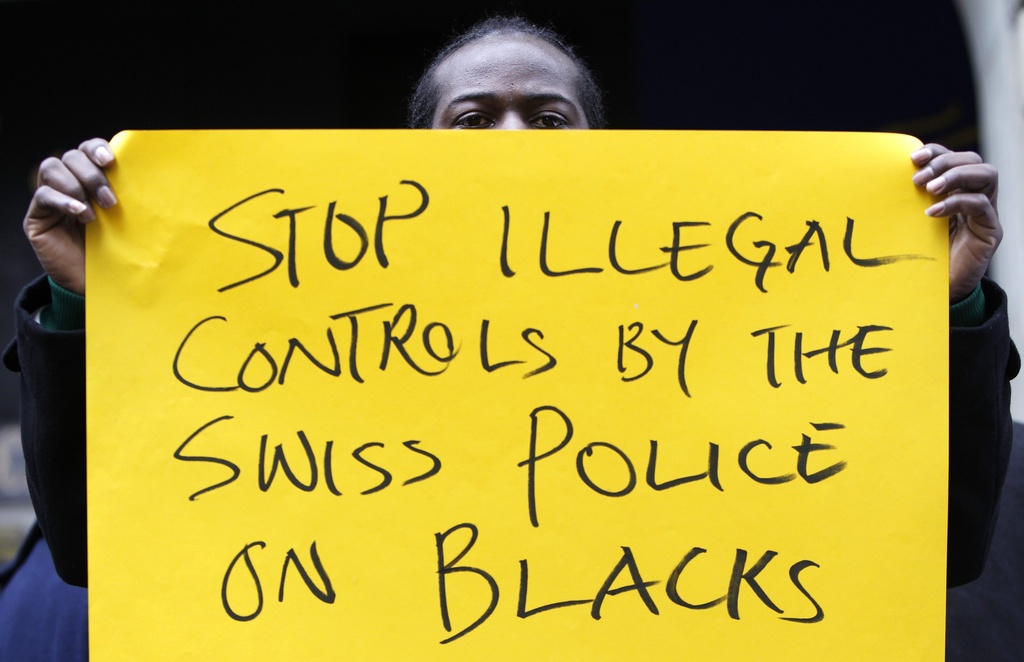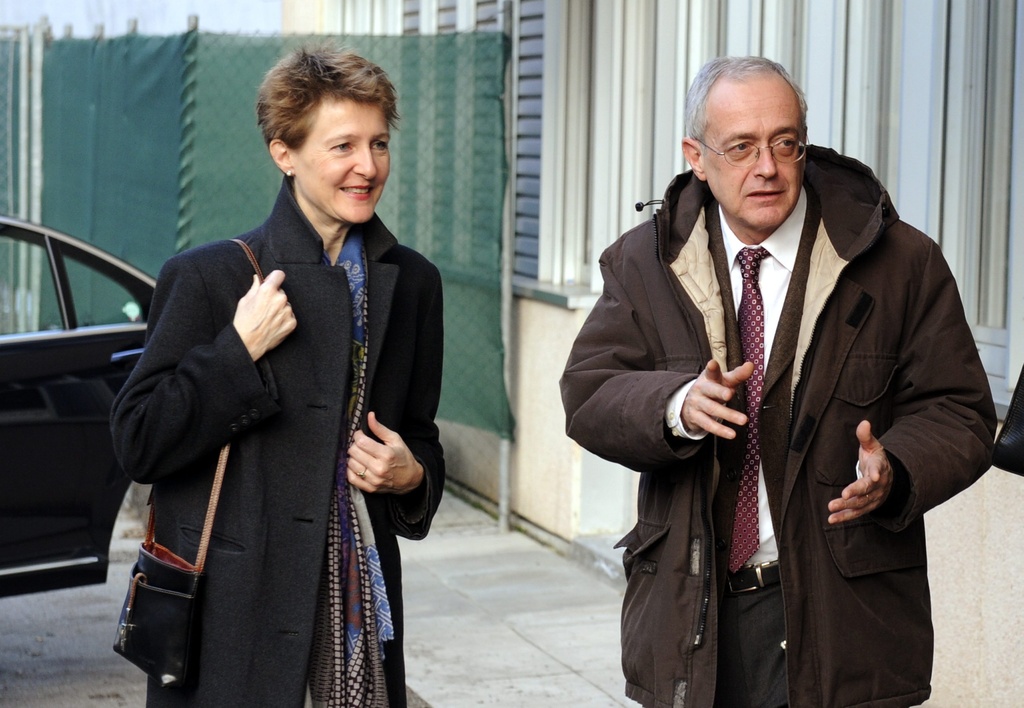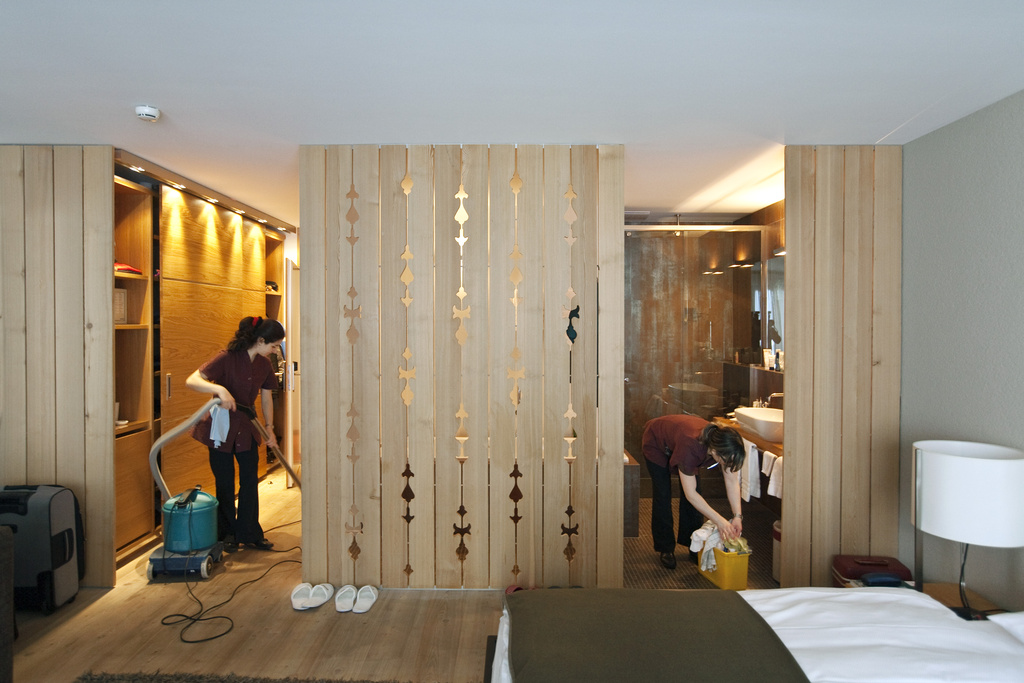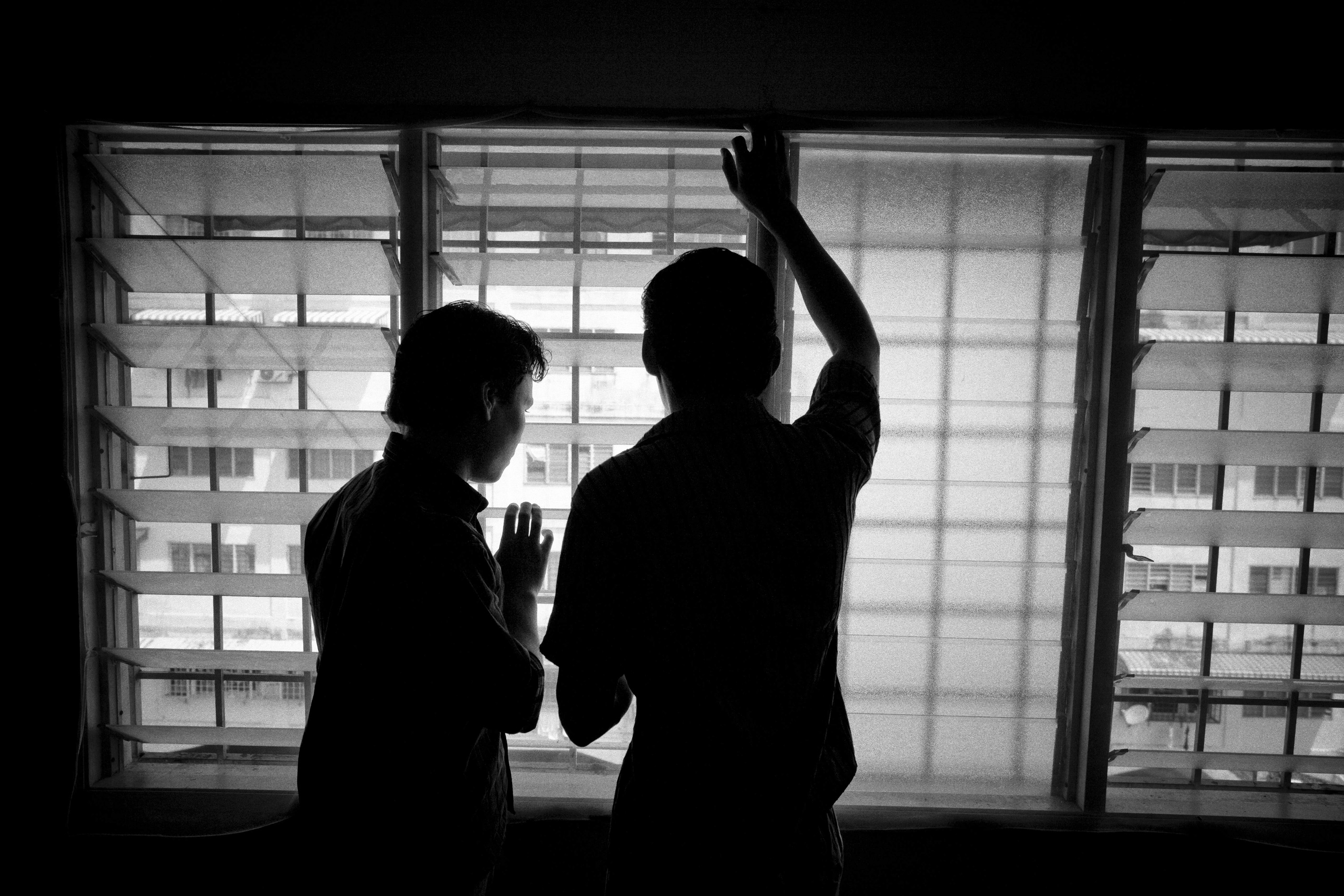Switzerland and Nigeria to cooperate on migration

Switzerland and Nigeria have signed a wide-ranging deal on migration, the first of its kind between the Swiss government and an African state.
Following a meeting on Monday with Nigerian Foreign Minister Henry Odein Ajumogobia, Swiss Justice Minister Simonetta Sommaruga told a news conference that the forced deportations of Nigerians residing illegally in Switzerland would be continued.
Nigerians represent the largest national group of asylum seekers in Switzerland. In 2010, a total of 1,969 Nigerian citizens asked for asylum, accounting for 13 per cent of all requests.
But very few Nigerians actually obtain asylum status here. In 2009, only one application was accepted; another six were granted temporary asylum. The overwhelming majority of requests were rejected; 1,670 were turned down in 2010.
There are several reasons for this. According to Beat Meiner, secretary general of the Swiss Refugee Council, most Nigerians seeking asylum fail to convince the authorities during the asylum procedure.
“They tell the same stereotypes – short stories that are not credible, and not their real biography,” Meiner told swissinfo.ch.
He went on to say that in most cases, the rejection of asylum applications was probably justified.
“The people from the charities, who attend the hearings, also see it that way,” Meiner said.
Departure issues
Most asylum seekers arrive in Switzerland without a passport. This becomes a problem in the case of rejected asylum applications because the home country will only accept a return if the identity and thus the nationality of the person can be shown.
The deportation procedure is also difficult because it usually requires force. During the special departure flights, the rejected asylum seekers are often handcuffed and accompanied by police.
On top of that, the flights often fail because the destination country refuses to allow the plane to land; meaning it has to return to Switzerland.
Deaths
In addition, the forced deportations have generated bad press over the years. In 1999, a Palestinian suffocated in a lift at Zurich airport. He had been accompanied by three police officers. In 2001, a Nigerian suffocated in his cell after a show of police force.
And in March 2010, a rejected Nigerian asylum seeker died as he was about to be put on a plane at Zurich Airport. The exact cause of his death has yet to be clarified.
Last year’s death prompted Switzerland to cease deportation flights for several months. The repatriations resumed in mid-January 2011, with three rejected Nigerian asylum seekers sent home.
Candidates to be tested
Speaking to the media in Bern on Monday, Justice Minister Simonetta Sommaruga said that additional forced repatriations were planned. She declined to say exactly when, noting that these deportations were a “last resort”.
A further development of the Schengen Agreement requires that the special flights now be accompanied by neutral observers. So far, Switzerland has not found a solution; the Swiss Red Cross has declined to take on the task.
According to Sommaruga, the federal government wants to commence specially chaperoned flights starting in mid-2011. The Federal Migration Office (FMO) is currently reviewing candidates, Sommaruga said.
Financial incentives
In the meantime representatives of the Anti-Torture Commission will board the flights, according to Gottfried Zürcher, deputy director of the migration office.
The Nigerians deported in January travelled on a flight organised by Frontex, the agency that secures the European Union’s external borders. Neutral observers are always aboard Frontex repatriation flights.
Nigerian Foreign Minister Odein Ajumogobia said he hoped that future deaths could be avoided thanks to the new partnership. He pointed out that the best thing would be to persuade failed asylum seekers to return voluntarily.
To this end, Switzerland intends to help such people return home by giving them financial aid and supporting them with the reintegration process in their homelands.
The agreement with Nigeria includes other measures; for example, Swiss companies operating there should help establish educational programmes.
This migration partnership is the first between Switzerland and an African country. Switzerland has signed three similar accords to date; all with Balkan countries.
About 25,000 people with official refugee status presently live in Switzerland.
Another 23,000 people have been granted temporary refugee status.
Last year, 15,567 people applied for asylum in Switzerland – up 2.7% on the previous year. Most requests came from migrants from Nigeria (1,969), Eritrea (1,799), Sri Lanka (939) and Serbia (910).
More than 20,000 applications were processed last year by the Swiss authorities, leaving a backlog of about 9,000.
Less than one in five requests (18%) were granted, while almost one in four (23%) applicants were given temporary status. Nearly 50% of the requests were rejected and referred the applicants to other European countries that signed up for the Dublin accord.
Figures: Federal Migration Office
(Translated from German by Susan Vogel-Misicka)

In compliance with the JTI standards
More: SWI swissinfo.ch certified by the Journalism Trust Initiative




You can find an overview of ongoing debates with our journalists here. Please join us!
If you want to start a conversation about a topic raised in this article or want to report factual errors, email us at english@swissinfo.ch.